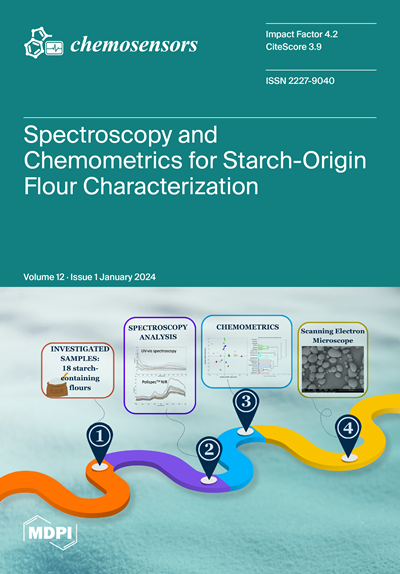希腊原产五种百里香精油成分的评估
IF 3.7
3区 工程技术
Q2 CHEMISTRY, ANALYTICAL
引用次数: 0
摘要
百里香属包括多种分类群,其中许多分类群的植物化学成分仍未得到充分开发。在这项研究中,我们采用气相色谱结合质谱法研究了五种原产于希腊的百里香属植物的挥发性化合物的植物化学成分。我们研究了从帕尔尼塔山和帕尔纳索斯山采集的两个 T. parnassicus 样品。帕尔尼塔山样本中最主要的化合物是 α-cadinol(13.53%)、E-caryophyllene(11.83%)和硒-11-烯-4α-醇(7.29%)。帕尔纳索斯山的样本显示出较高的 E-加里叶烯浓度(35.20%),其次是 β-双大麻烯(10.41%)。此外,还在切尔摩斯山(伯罗奔尼撒半岛)采集到两个物种,即 T. leucotrichus subsp.白百里香的精油富含榄香酚(35.56%)、α-桉叶油醇(11.15%)和β-桉叶油醇(6.11%)。百里香(Thymus atticus)的芳樟醇(63.04%)和对伞花烯(25.63%)含量较高。此外,从 Kefalonia Ιsland 采集的两个 T. holosericeus 样本都富含香叶醇(分别为 89.9% 和 87.7%)。我们还研究了 T. laconicus 的挥发性特征,这是伯罗奔尼撒半岛东南部(拉科尼亚地区)的一个地方特有物种,目前仍未被开发。经鉴定,香芹酚(32.7%)和对伞花烯(29.7%)是主要的化合物。我们的研究有助于深入了解百里香属植物的化学特征,并进一步揭示了该属植物众所周知的化学多态性。本文章由计算机程序翻译,如有差异,请以英文原文为准。
Evaluation of the Essential Oil Composition of Five Thymus Species Native to Greece
The genus Thymus encompasses a wide array of taxa, many of which remain underexplored in terms of their phytochemical profile. In this study, we investigated the phytochemical composition of volatile compounds of five Thymus species native to Greece using gas chromatography combined with mass spectrometry. Two samples of T. parnassicus collected from Mts Parnitha and Parnassos were studied. The predominant compounds in the Parnitha sample were α-cadinol (13.53%), E-caryophyllene (11.83%) and selin-11-en-4α-ol (7.29%). The sample from Mt. Parnassos exhibited a high concentration of E-caryophyllene (35.20%) followed by β-bisabolene (10.41%). Additionally, two species, namely T. leucotrichus subsp. leucotrichus and T. atticus, were collected on Mt. Chelmos (Peloponnese). The essential oil of T. leucotrichus was rich in elemol (35.56%), α-eudesmol (11.15%) and β-eudesmol (6.11%). Thymus atticus exhibited a high concentration in linalool (63.04%) and p-cymene (25.63%). In addition, two samples of T. holosericeus collected from Kefalonia Ιsland were both rich in geraniol (89.9% and 87.7%, respectively). We also examined the volatile profile of T. laconicus, a local endemic species of SE Peloponnese (Lakonia area), which remains unexplored. Carvacrol (32.7%) and p-cymene (29.7%) were identified as the dominant compounds. Our study contributes valuable insights into the chemical profile of Thymus spp. and sheds further light on the well-known chemical polymorphism within this genus.
求助全文
通过发布文献求助,成功后即可免费获取论文全文。
去求助
来源期刊

Chemosensors
Chemistry-Analytical Chemistry
CiteScore
5.00
自引率
9.50%
发文量
450
审稿时长
11 weeks
期刊介绍:
Chemosensors (ISSN 2227-9040; CODEN: CHEMO9) is an international, scientific, open access journal on the science and technology of chemical sensors published quarterly online by MDPI.The journal is indexed in Scopus, SCIE (Web of Science), CAPlus / SciFinder, Inspec, Engineering Village and other databases.
 求助内容:
求助内容: 应助结果提醒方式:
应助结果提醒方式:


